ES faculty are represented in all four divisions of the College. Core faculty teach ES courses every year and serve as academic and Senior Project advisers to ES students. Associate faculty members teach ES courses and serve on Moderation and Senior Project boards.
Core Faculty
-
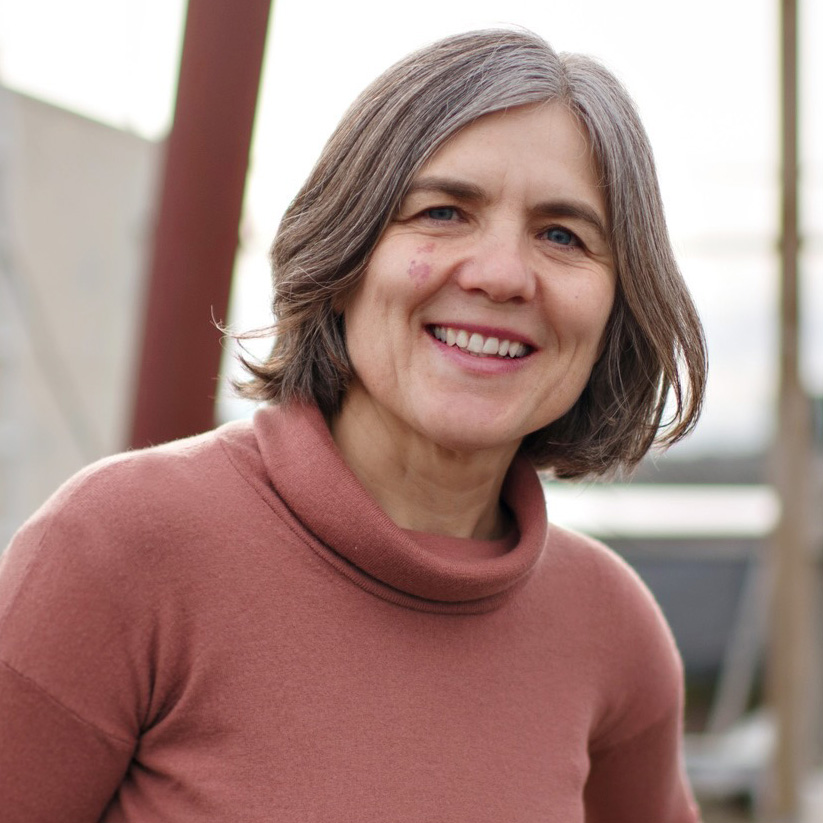 Beate G. Liepert, DirectorEnvironmental Studies; Physics
Beate G. Liepert, DirectorEnvironmental Studies; Physics
Beate G. Liepert, Director
Environmental Studies; Physics
Visiting Professor of Environmental and Urban Studies and Physics; Director, Environmental Studies
Academic Program Affiliation(s): Environmental Studies, Physics
Hegeman 314
[email protected]
Dr. Liepert is a climate scientist who pioneered research on the phenomenon of “global dimming,” a decline in the amount of sun reaching the Earth’s surface, which has implications on the planet’s water and carbon cycles. She comes to Bard from the Seattle area, where she worked for and founded start-ups in the clean tech and insure tech fields, and was a lecturer in the Department of Civil and Environmental Engineering at Seattle University. The start-ups included CLIWEN LLC, a climate, energy, and weather consulting concern; and Lumen LLC, a company that developed design solutions for solar cells. She also served as a research scientist at True Flood Risk LLC in New York, NorthWest Research Associates in Seattle, and the Lamont-Doherty Earth Observatory of Columbia University. Her work centers on basic questions of climate variability, from interannual to centennial time scales. Research interests also include taking measurements of aerosols and solar radiation and investigating climate effects on ecosystems.
Additional activities have included serving as editor for Environmental Research Letters, a UK-based journal; proposal review panelist and proposal reviewer for the National Science Foundation; presenting at more than 50 international conferences and university colloquia; and authoring reviews and articles for journals including Bulletin of the American Meteorological Society, Climate, Frontiers, International Journal of Climatology, Nature, Science, Quarterly Journal of the Royal Meteorological Society, and Global and Planetary Change, among many others. She has been interviewed on CNN and numerous international TV broadcasts; was a featured scientist in the BBC documentary Dimming the Sun, which also aired on PBS; and was profiled in a “Talk of the Town” essay in the New Yorker. Professor Liepert is the recipient of the 2016 WINGS World Quest “Women of Discovery” Earth Award and in 2015 she delivered a Distinguished Scientist Lecture at Bard on “Dimming the Sun: How Clouds and Air Pollution Affect Global Climate.”
Diploma, Institute of Meteorology and Institute of Bioclimatology and Air Pollution Research, Ludwig-Maximilians University Munich; Doctor rer. nat., Institute of Meteorology, Department of Physics, Ludwig-Maximilians University; postdoctoral research scientist, Lamont-Doherty Earth Observatory of Columbia University; certificate program in fine arts, Parsons School of Design. (2022– ). -
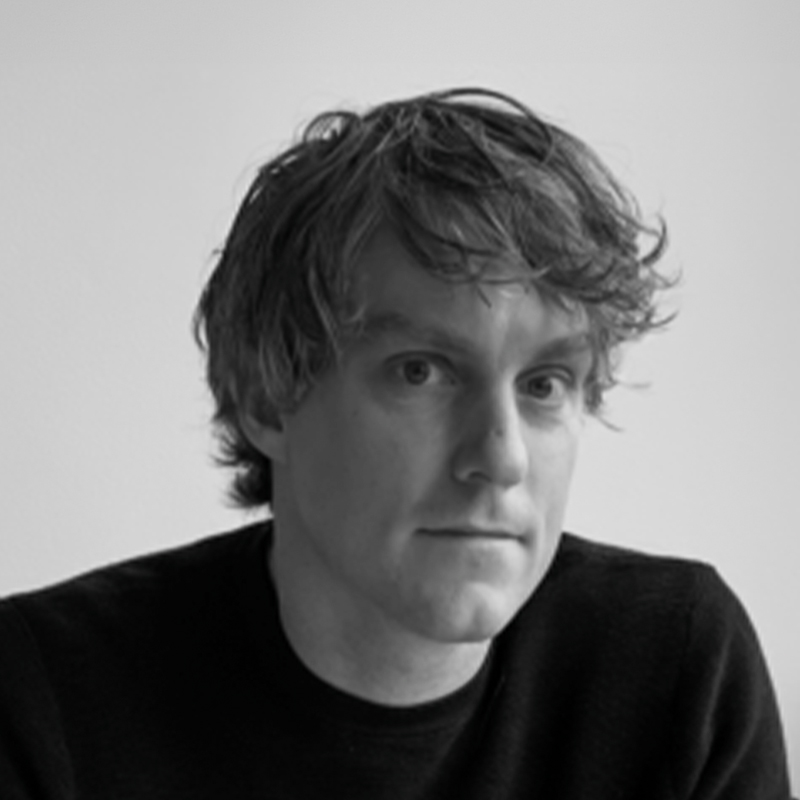 Ross AdamsES Steering Committee; Architecture
Ross AdamsES Steering Committee; Architecture
Ross Adams
ES Steering Committee; Architecture
Ross Exo Adams is an architect and urban historian whose work draws on histories of urbanization, geography, politics, technologies, and environments to understand the relations between power and space that persist at their intersection. His book, Circulation and Urbanization (Sage, 2019), is a spatial history of the concept of circulation. It maps the ways in which this notion helped animate early modern and modern political ideas while at the same time giving shape to emerging spaces of the world. Through this lens, it argues that the urban is a uniquely modern space and process (urbanization) which, while drawing on early modern colonial spaces and structures of control, first became legible and reproducible over the course of the 19th century. Stemming from this historical research, Ross’s work has long focused on critically engaging the contemporary interrelations of ecology, nature, infrastructure, landscape, and urbanism that have formed under the broader frameworks of sustainability, ecological urbanism, and resilience. His current work draws on both contemporary material and historical inquiry in order to hone in on emerging modes in which the human body is drawn into relations with urban space. Expanding on histories of gender, race, and the fabrication of difference, this project explores how the production of space, of technologies, infrastructures, landscapes, and environments always involves the coproduction of bodies. He has written and presented widely on these bodies of work, and his writings have been published in edited volumes, such as Platform Urbanism and Its Discontents, Territory beyond Terra, Landscape and Agency, Infrastructure Space, Climates: Architecture and the Planetary Imaginary, The Architecture of Closed Worlds, and scholarly and public journals including Environment and Planning D: Society and Space, e-flux Architecture, The Avery Review, Architectural Histories, Architecture and Culture, Volume, Log, Radical Philosophy, ArchDaily, Aggregate (forthcoming), and Journal of Architectural Education (forthcoming), among others. His work has been featured in the Venice Biennale of 2021 (Austrian Pavilion, Turkish Pavilion, Italian Pavilion) and 2014 (Swiss Pavilion), Storefront for Art and Architecture, and other public venues.
Ross’s research has been supported by fellowships and grants from the Royal Institute of British Architects, London Consortium, Iowa State University, and MacDowell. Prior to joining Bard, he taught architecture and urbanism at Iowa State University, the Bartlett School of Architecture, UCL; Architectural Association; Berlage Institute in Rotterdam; and the University of Brighton (UK). As an architect and urban designer, Ross has practiced with, among others, Productora DF, Mexico; Foster and Partners and Arup Urban Design, United Kingdom; and MVRDV, Netherlands. Since 2016, he has been reviews editor for The Journal of Architecture (RIBA).
BS, University of North Carolina at Chapel Hill; MArch, Berlage Institute, Rotterdam; PhD, London Consortium. At Bard since 2019.
-
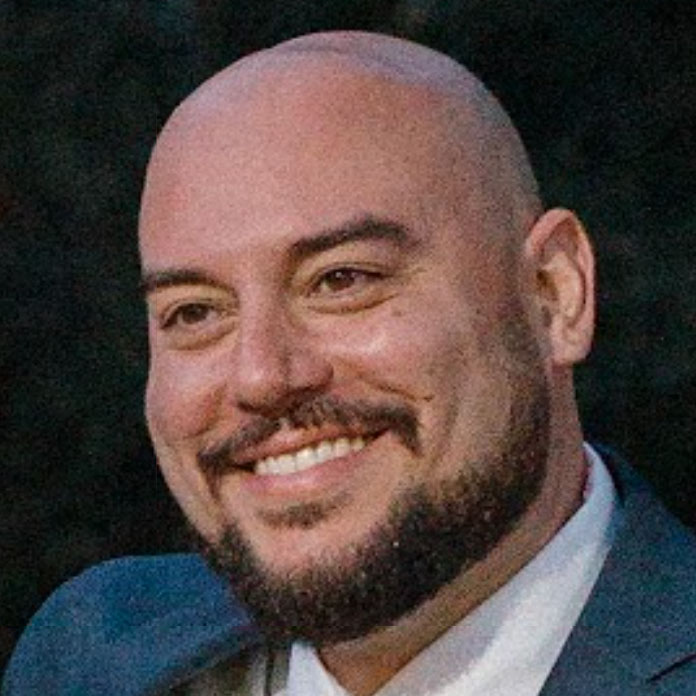 Jordan AyalaEnvironmental Studies; Data Analytics
Jordan AyalaEnvironmental Studies; Data Analytics
Jordan Ayala
Environmental Studies; Data Analytics
Visiting Assistant Professor of Data Analytics and Environmental Studies
Jordan Ayala is an educator and multidisciplinary researcher whose work integrates data science, geography, planning, and economics. Beginning in August 2023, Jordan began a new role as Visiting Assistant Professor of Data Analytics and Environmental and Urban Studies at Bard College. Previously, he served as a Visiting Instructor for Geographic Information Systems at Bard College and Research Associate with the Open Society University Network (OSUN) Economic Democracy Initiative. He conducts applied research using quantitative and qualitative data collection and analysis, community-based research methods, and spatial analysis through the lens of stratification economics. His latest research efforts include collaborative mixed-method survey research and participatory data analysis with former-refugee communities in Kansas City, MO. Working with resident researchers across eight languages, these research projects have generated substantial public and private investment to address environmental issues, community development, and housing security including a community land trust, efforts to address absentee homeownership, solar panel installation for low-income households, and community solutions to property violations and minor home repair, which received national attention. His research and teaching interests include Geographic Information Science, spatial analysis, political economy, participatory action research, environmental and urban studies, and Latinx studies.
BA, MA, Graduate Certificate in Geographic Information Systems, PhD candidate, University of Missouri–Kansas City. At Bard since 2022.
Email: [email protected] -
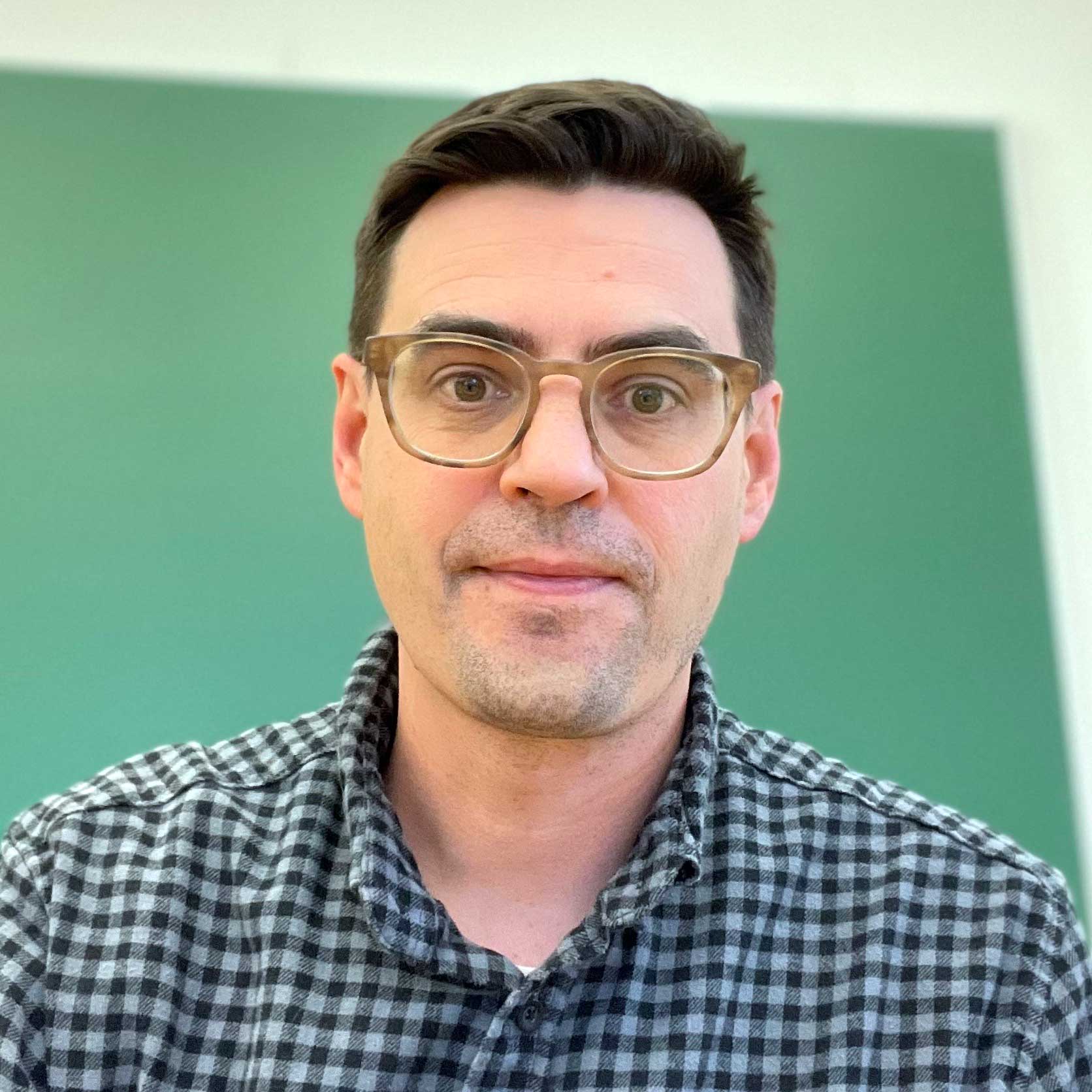 Alex BensonEUS Director; Literature
Alex BensonEUS Director; Literature
Alex Benson
EUS Director; Literature
Associate Professor of Literature
Academic Program Affiliation(s): American and Indigenous Studies, Environmental Studies, Experimental Humanities
Professor Benson specializes in 19th and 20th century literature of the United States, with interests in media and print cultures, sound studies, the history of anthropology, and environmental humanities. He is the author of Sound-Blind: American Literature and the Politics of Transcription (University of North Carolina Press, 2023). A second book project in progress examines representations of species extinction. His writing has also appeared in scholarly journals including PMLA, Narrative, Leviathan, Small Axe, and Criticism and in the edited volume Contesting Extinctions: Decolonial and Regenerative Futures.
BA, PhD, University of California, Berkeley. At Bard since 2012.
Email: [email protected] -
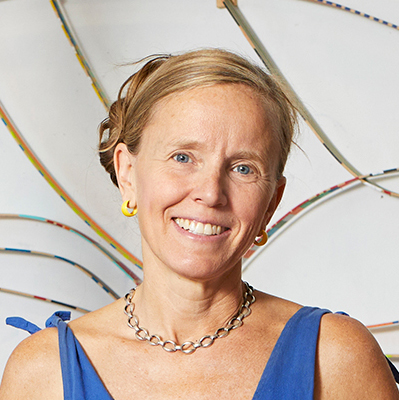 Adriane ColburnStudio Arts
Adriane ColburnStudio Arts
Adriane Colburn
Studio Arts
BFA, The School of the Art Institute of Chicago; MFA, Stanford University. Previously taught at University of Georgia, Athens. Selected exhibitions at ERES Foundation, Munich; Smack Mellon, Brooklyn; Center for Contemporary Arts, Santa Fe; and Berkeley Art Museum, Berkeley. Her exhibit Unfold, a cultural response to climate change, toured extensively, including stops in China, London, Edinburgh, New York, and Chicago. Residencies and awards include Best Exhibition Award, Dumbo Arts Festival, Brooklyn; artist in residence at Cannonball, Miami; Mustarinda, Finland; arctic nitrogen scientific research expedition with marine scientists from the University of Georgia in Barrow, Alaska; and Cape Farewell Project Andes to Amazon expedition. At Bard since 2014. -
 Cathy CollinsBiology
Cathy CollinsBiology
Cathy Collins
Biology
Associate Professor of Biology
BA, Pitzer College; MS, University of Arizona; PhD, University of Kansas; postdoctoral research, Washington University. She previously taught at Colby College, where she was Clare Boothe Luce Assistant Professor in the Department of Biology. She has published in Forest Ecology and Management, AAAS-Science Advances 1, Oecologia, PLoS ONE, Biological Conservation, and Journal of Ecology, among others, on such subjects as fragmentation and its impact on Earth’s ecosystems, habitat specialization patterns of neotropical birds, historic agriculture, and land-use history. Honors include a National Science Foundation Research Experience for Undergraduates grant, which allowed her to conduct studies in South Gondar, Ethiopia; and numerous research and travel grants from Colby and the University of Kansas; and a Thomas J. Watson Foundation Fellowship (Australia). She has presented her work at the Ecological Society of America, American Ornithologists’ Union, Harvard University, Cary Institute of Ecosystem Studies, and at venues in Ethiopia, France, and Australia. At Bard: 2010–11; 2016– .
RKC 209
[email protected] -
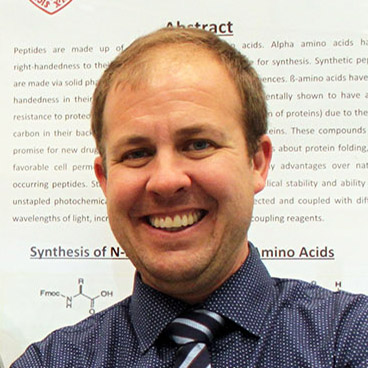 M. Elias DuekerCESH Director; Environmental Science
M. Elias DuekerCESH Director; Environmental Science
M. Elias Dueker
CESH Director; Environmental Science
Associate Professor of Environmental and Urban Studies; Bard Center for Environmental Sciences and Humanities
Academic Program Affiliation(s): Biology, Environmental Studies
Professor Eli Dueker joined Bard in 2014 as the Assistant Professor of Environmental and Urban Studies. With a B.A. from Rhodes College, an MA, MPhil,and PhD, from Columbia University, he completed his postdoctoral research at Queens College, City University of New York, and Lamont-Doherty Earth Observatory of Columbia University. Additionally, he studied at Columbia University’s Ecology, Evolution, and Environmental Biology postbaccalaureate program. He is the recipient of grants and awards from the Hudson River Foundation, Janet Holden Adams Fund, and the DEC's Hudson River Estuary Program among others. His work has been published in Environmental Science and Technology, Biogeosciences, and Science of the Total Environment. Before entering academia, he worked for 14 years in the nonprofit world, including 10 years as an organizational development consultant addressing issues of race, class, gender, and sexuality in institutional structures, serving as the former director of Project Underground, an international environmental and human rights organization, and as a board member of Sylvia Rivera Law Project, a transgender law collective in NYC. He is the founder and Interim Leadership Team member of the Saw Kill Watershed Community, which protects the Saw Kill watershed and its ecological, recreational, and historic resources through hands-on science, education, and advocacy. His teaching interests include water quality, air quality, oceanography, urban ecology, environmental microbiology, and the role of science in addressing environmental justice issues.
Rose 116
[email protected]
eduekerlab.com -
 Gidon EshelEnvironmental Studies; Physics
Gidon EshelEnvironmental Studies; Physics
Gidon Eshel
Environmental Studies; Physics
Research Professor
BA, Haifa University, Israel; MA, MPhil, PhD, Lamont Doherty Earth Observatory of Columbia University. Specializes in oceanography, climatology, geophysics. Senior Fellow, Center for Environmental Science and Argonne National Laboratory (2002–07); principal investigator, Center for Integrating Statistical and Environmental Science, University of Chicago (2001–03); assistant scientist, Woods Hole Oceanographic Institution (1998–99). Assistant professor, University of Chicago (1999–07). Author, Geophysical Data Analysis (Princeton University Press, 2008). Faculty, Bard College at Simon’s Rock: The Early College. At Bard since 2008.
Research Interests: climate dynamics; climate variability; climate change; agricultural environmental science; simple population models
Teaching Interests: data analysis; global/regional/local climate change; agricultural environmental efficiency and metrics thereof
Hegeman 203
[email protected] -
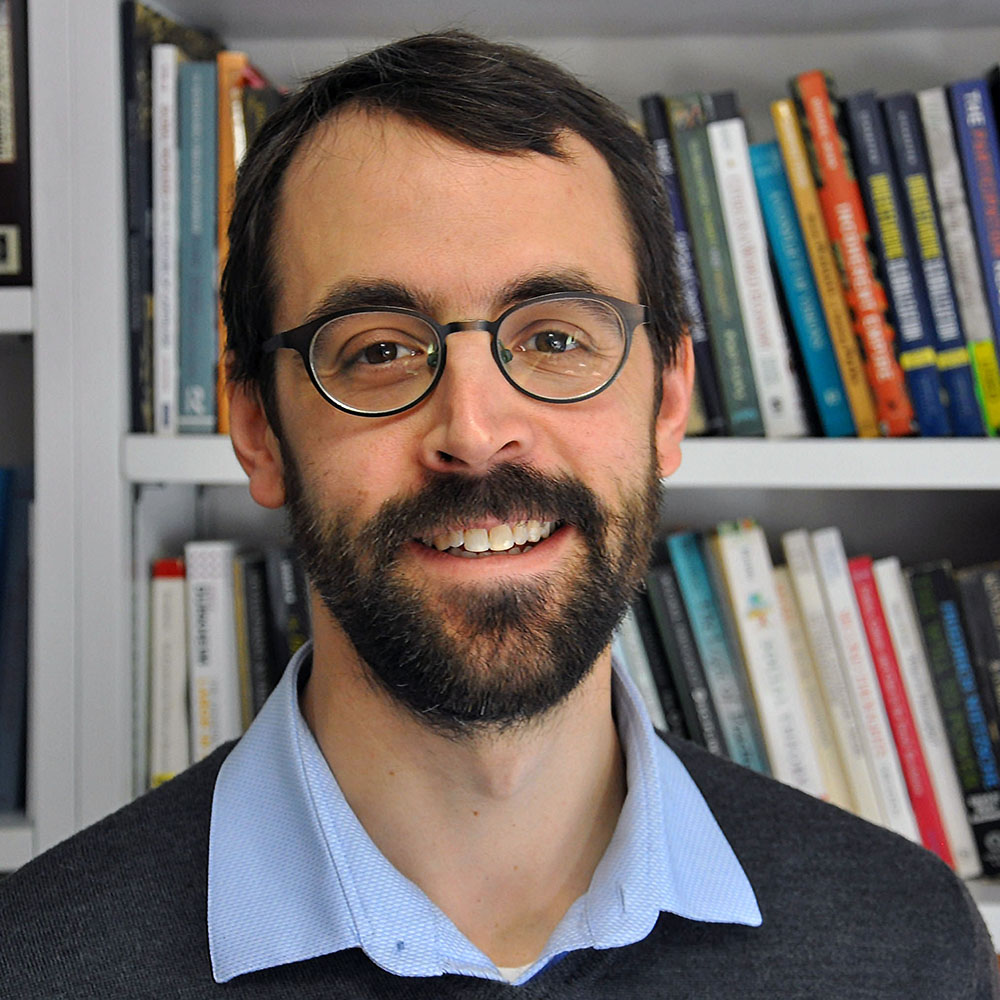 Peter KleinSociology; ES Steering Committee
Peter KleinSociology; ES Steering Committee
Peter Klein
Sociology; ES Steering Committee
Assistant Professor of Sociology and Environmental and Urban Studies
Academic Program Affiliation(s): Environmental and Urban Studies, Sociology
Biography: Professor Peter Klein’s teaching and research focus on urban studies, environmental sociology, globalization and development, political sociology, and qualitative methods. He is engaged in research and community-based projects in both the United States and Brazil.
Peter’s research in Brazil focuses on public participation, urban and environmental change, and collective action in both Amazonia and Rio de Janeiro. His award-winning book manuscript, Flooded: Development, Democracy, and Brazil’s Belo Monte Dam (Rutgers University Press, 2022), provides an ethnographic account of the societal effects of the state’s attempt to mitigate the negative impacts of one of the world’s largest hydroelectric facilities with extensive social and economic resources.
Peter continues to carry out research in the Brazilian Amazon, and his work extends to Rio de Janeiro. Currently, he is using ethnography, archival work, interviews, oral histories, and participatory action methods to explore the history and contemporary struggles of the fishers of Complexo da Maré, the largest conglomeration of favelas in Rio. His project, “The Favela and the Sea: Fishing, Urbanization, and Environmental (In)Justice,” is supported by a Fulbright Scholar Award and a Franklin Research Grant from the American Philosophical Society. He also engages with scholars, activists, and artists based in the city and the Global North, in efforts to reframe stigmatized understandings of Rio’s favelas, carry out research on environmental inequality, democratize academia, and rethink how knowledge is produced. Since 2019, Peter has been doing much of this work through Maré from the Inside, a visual and textual exhibit.
Peter also engages in teaching- and community-based participatory research and engagement in the United States on civic participation, environmental inequality, and housing insecurity. He cares deeply about student engagement in the world beyond the classroom, so that they can see the value of the ideas they learn in courses and apply them to civic and political work that matters to them. Through his courses and special projects, he works with students to actively participate in efforts in local communities, particularly the city of Kingston, that address environmental, housing, and other social justice issues.
Professor Klein’s published work appears in The Journal of Peasant Studies, Latin American Research Review, and American Journal of Sociology, among other academic journals. He is also co-author of The Civic Imagination: Making a Difference in American Political Life (2014).
[email protected] -
 Peter L’OfficialEUS Steering Committee; Literature
Peter L’OfficialEUS Steering Committee; Literature
Peter L’Official
EUS Steering Committee; Literature
Assistant Professor of Literature
Primary Academic Program: Literature
Academic Program Affiliation(s): American Studies, Environmental and Urban Studies
Biography: BA, Williams College; MA, New York University; PhD, Harvard University. Areas of specialization include African American literature and culture, 20th- and 21st-century American literature, 20th- and 21st-century American art and architecture, and urban history, and his scholarly interests include cultural studies and art criticism. He has been an occasional contributor to Grantland, the Los Angeles Review of Books, GQ.com, and elsewhere. His book, Urban Legends: The South Bronx in Representation and Ruin, is in progress. Fellow at the Charles Warren Center for Studies in American History at Harvard University in 2014–15. At Bard since 2015.
Aspinwall 310
[email protected] -
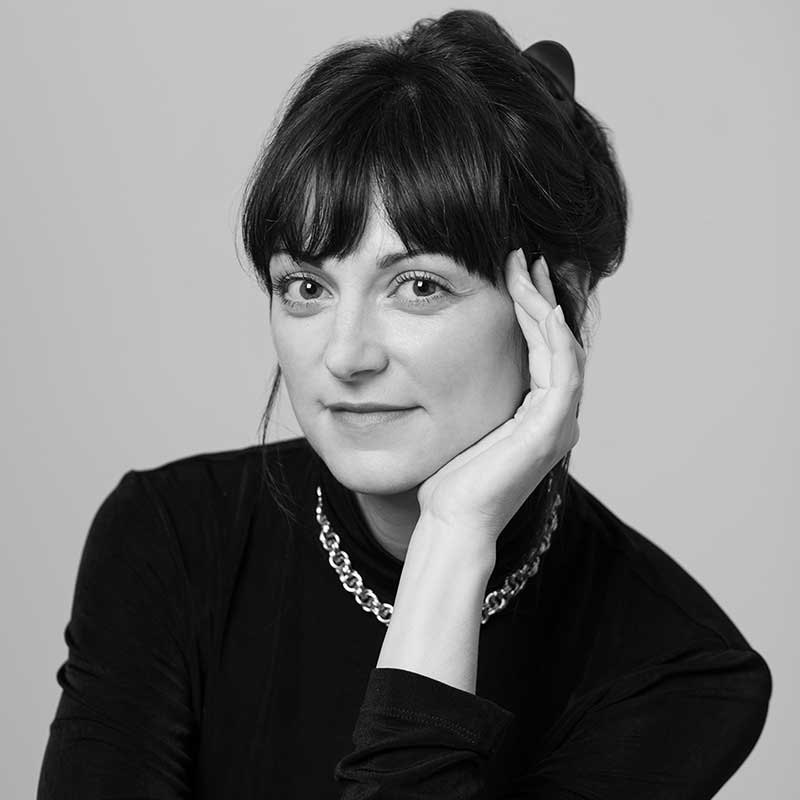 Jana MaderEnvironmental Studies; Hannah Arendt Center
Jana MaderEnvironmental Studies; Hannah Arendt Center
Jana Mader
Environmental Studies; Hannah Arendt Center
Jana Mader is a Visiting Assistant Professor in Environmental Studies and the Humanities and the Director of Academic Programs at the Hannah Arendt Center at Bard College. She holds an M.A. in German Studies and Anthropology and a Ph.D. in Comparative Literature, both from the University of Munich. Before joining Bard in 2021, she taught at the University of North Carolina and The Juilliard School. Her teaching and research focus on the history, art, and literature of the Hudson River Valley, particularly in the 19th century. As a scholar, writer, and translator, she works at the intersection of theory and practice. She has published four books, including a novel and a comparative analysis of 19th-century literature on the Hudson Valley and the Rhine. More about her work can be found at janamarlene.com. -
 Gabriel G. PerronBiology
Gabriel G. PerronBiology
Gabriel G. Perron
Biology
Dr. Gabriel G. Perron is an Associate Professor of Biology at Bard College and a Visiting Scientist at the New York Genome Center in New York City. With an M.Sc. from McGill University and a Ph.D. from the University of Oxford, Dr. Perron has honed his expertise in food safety, microbial genomics, and the evolution of antibiotic resistance in super-bugs. Dr. Perron's passion for cutting-edge research has taken him to some of the world's leading institutions, including Imperial College London and Harvard University, where he developed innovative techniques to study the spread of antibiotic-resistance genes and pathogens in environmental microbiomes. His work has resulted in over 40 peer-reviewed publications in leading international journals, making him a recognized authority in his field. In addition, he is a regular contributor to public discussions on topics such as environmental health, public health, and food safety, further cementing his reputation as an influential voice in the scientific community. Currently, Dr. Perron's research focuses on investigating the impacts of antimicrobial resistance evolution on human and environmental health with a focus on urban environments. -
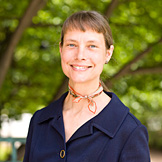 Jennifer G. PhillipsBard Center for Environmental Policy
Jennifer G. PhillipsBard Center for Environmental Policy
Jennifer G. Phillips
Bard Center for Environmental Policy
Assistant Professor, Bard Center for Environmental Policy
BS, Hunter College; MS, PhD in soil, crop, and atmosphere science, Cornell University. Previous to joining Bard CEP, she was a researcher at the International Research Institute for Climate Prediction, Columbia University, and NASA Goddard Institute for Space Studies. Expertise in the impact of climate change and variability on farming systems, communication and perception of climate information for farm management, and sustainable farming systems. After eight years of research in eastern and southern Africa, she worked with farmers in eastern New York State on climate risk management, adaptation to climate change, and sustainability in the face of extreme climate events. Current interests include pasture-based livestock systems, carbon storage and management in agroecosystems, and rhizosphere processes. Articles in Agricultural Systems, Agricultural and Forest Meteorology, Climatology, and International Journal of Climatology; and several book chapters.
Hegeman 004
[email protected]
Gansvoort Farm -
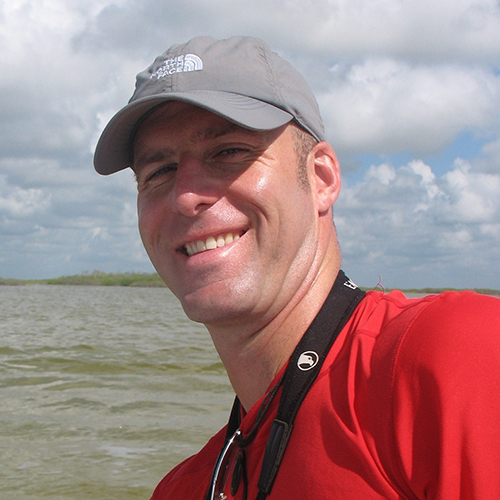 Bruce RobertsonBiology
Bruce RobertsonBiology
Bruce Robertson
Biology
Associate Professor of Biology
Bruce Robertson is a conservation ecologist. His research focuses on questions that address important conservation issues, but that also provide fundamental insights into ecological theory. Broadly speaking, he investigates the direct and indirect impacts of human activities on biodiversity, species persistence and species interactions with special emphasis on how rapidly changing environments may disrupt evolved relationships and trigger maladaptation. He is especially interested in cases in which novel environments trigger animals to actually prefer to make inappropriate, detrimental and often dangerous decisions. These scenarios are known as evolutionary traps. Traps are an emerging conservation problem that can contribute population declines in species of concern. He collaborates extensively on a variety of projects including a study of the impact of new forms of pollution (polarized light pollution) on aquatic insects, and research investigating how to grow next generation bioenergy crops that facilitate the conservation of biodiversity. Trained as an ornithologist, Bruce increasingly uses arthropods, mammals and plants as study organisms.
RKC 213
[email protected] -
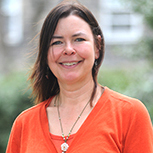 Monique SegarraBard Center for Environmental Policy
Monique SegarraBard Center for Environmental Policy
Monique Segarra
Bard Center for Environmental Policy
Visiting Professor, Bard Center for Environmental Policy
BA, Brandeis University in Political Science; MIA, School of International and Public Affairs, Columbia University; PhD, comparative politics and Latin America, Columbia University. Areas of interest include sustainable development, international environmental politics and the increasingly contentious politics surrounding natural resource management in Latin America. Current research focuses on the politics of water reform in Oaxaca, Mexico and comparative analysis of human and environmental rights movements challenging mineral and oil policies of states and multinational corporations in Ecuador, Mexico, and Chile. She has published articles in journals such as Latin American Politics and Society andThe Journal of Contemporary Sociology, and has edited and contributed to The New Politics of Inequality in Latin America. She has a forthcoming chapter on human rights and the environment in Latin America in Human Rights: Challenges of the Past/Challenges for the Future. In addition to research and teaching, she has worked with a range of international development and research institutions, including the World Bank, the United Nations Development Program, and the Council on Foreign Relations, and the Social Science Research Council. Member, BCEP Graduate Committee.
Hegeman 302
[email protected] -
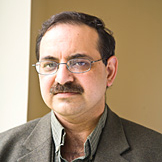 Gautam SethiBard Center for Environmental Policy
Gautam SethiBard Center for Environmental Policy
Gautam Sethi
Bard Center for Environmental Policy
Faculty, Bard Center for Environmental Policy
Gautam Sethi is an economist who enjoys working with scholars from many disciplines. He is currently working on projects as diverse as imputing value to wetlands, helping improve fuzzy cognitive modeling, and using spatial econometrics to model environmental injustice. Sethi is also writing a textbook on statistical methods and data analysis that allows readers to develop a deeper understanding of these methods and helps them think critically about policy questions involving causality. He has written numerous papers that have appeared in journals ranging from the Journal of Environmental Economics and Management, Journal of Real Estate Research, Bioscience, American Journal of Primatology, and Folia Primatologica. Sethi has served on multiple National Science Foundation committees and as a referee for over a dozen prestigious journals. His scholarship and teaching have won numerous awards and recognized by the National Geoscience Teaching Association, the American Wind Energy Association, the Socio-Environmental Synthesis Center, the Journal of Environmental Economics and Management, the University of California at Berkeley, and the University of Texas at Austin.
Hegeman 005
[email protected] -
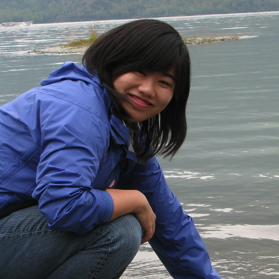 Yuka SuzukiAnthropology
Yuka SuzukiAnthropology
Yuka Suzuki
Anthropology
Associate Professor of Anthropology
BA, Cornell University; PhD, Yale University. Awards include Social Science Research Council International Dissertation Research Grant (1998–99); Wenner-Gren Foundation Predoctoral Research Grant (1998–99). Author, “Drifting Rhinos and Fluid Properties: The Turn to Wildlife Production in Zimbabwe” (Journal of Agrarian Change); coeditor, Zimbabwe: The Politics of Crisis and the Crisis of Politics. Teaching experience at Georgetown University (2001–02), Yale University, Quinnipiac University. At Bard since 2003.
Hopson 302
[email protected]
Associate Faculty
-
Associate FacultyKrista Caballero Artist in Residence
Betsy Clifton Architecture
Alejandro Crawford OSUN
Sanjaya DeSilva, Economics
Erin Doran Visiting Faculty
Eliza Edge OSUN
Jeannette Estruth History
Eban Goodstein Center for Environmental Policy
Elizabeth Holt Literature, Arabic
Brooke Jude Biology
Felicia Keesing Biology
Cecile Kusznitz Jewish Studies
Christopher Lindner Archaeologist in Residence
Susan Merriam Art History
Jennifer Offil, Written Arts
Julia Rosenbaum Art History
John Ryle Anthropology
Ivonne Santoyo-Orozco Architecture
Nathan Shockey Literature, Japanese
Sophia Stamatapolous-Robbins Anthropology
Olga Touloumi Art History
Emily White Chemistry
Daniel Williams Literature
Contact us
Environmental Studies Concentration
Bard College | PO Box 5000
Annandale-on-Hudson, NY 12504
[email protected]
















